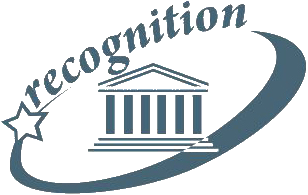International conference “Foreign education and qualifications recognition: modern approaches. The role of information resources”
On the 4th and 5th of December 2014 the National Information Center in association with Rosobrnadzor held an International conference “Foreign education and qualifications recognition: modern approaches. The role of information resources”. What was discussed and concluded during the conference can be read further.
On the 4th and 5th of December 2014 an International conference “Foreign education and qualifications recognition: modern approaches. The role of information resources” was held in the Peoples’ Friendship University of Russia.
The Deputy Director of Rosobrnadzor Alexander Biserov, the President of Peoples’ Friendship University of Russia, Professor and Chairman of the Higher Attestation Commission Vladimir Filippov, the President of the Russian International Students’ Association Yao Nikez Adu, Head of the EU-Russian Cooperation Programme Nicola Scaramuzzo took part in the conference. The representatives of foreign embassies and international experts from Information centers and universities from Latvia, Estonia, Finland, Norway, Rumania, Holland, Germany and etc. took active part in the conference and its discussions.
Alexander Biserov in his speech emphasized the necessity of developing new methods and trends in the sphere of recognition of foreign education, which could be included in the Regulatory acts. He also noticed that the recognition procedure becomes gradually more simplified. Due to the procedure simplification the number of documents that were admitted by Rosobrnadzor by the end of November 2014 reached 14.000, while in 2013 this number amounted to 8.000 documents.
Vera Skorobogatova in her presentation emphasized the necessity of defining methods for alternative recognition and cooperative development of new recognition instruments. She highlighted priority methods in the development of the recognition system:
- Development of information resources;
- Further implementation of the Lisbon Convention in the recognition process;
- Experts training and staff responsibility of the educational organizations;
- Ultimate implementation of available, flexible, transparent methods in the recognition procedure of foreign education.
The conference participants emphasized the development necessity of the regulatory base with the purpose of further integration of the recognition system in the European area and the usage of the best international practices.
After defining problems the participants discussed the ways of quality improvement and the optimization of the recognition procedure of foreign education and also confirmed recommendations.
All the conference materials, presentations and recommendations could be found on the website, in the section “Conferences”.






